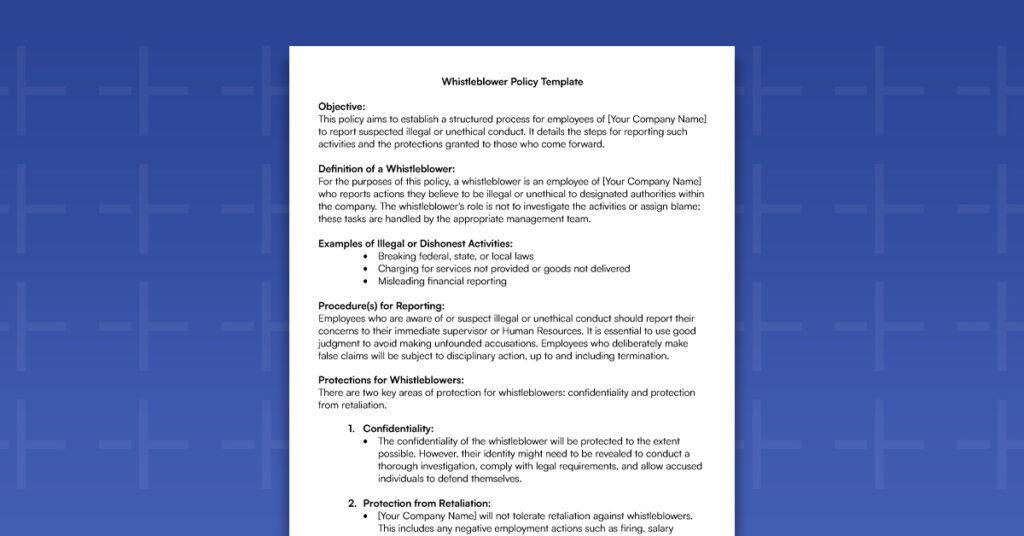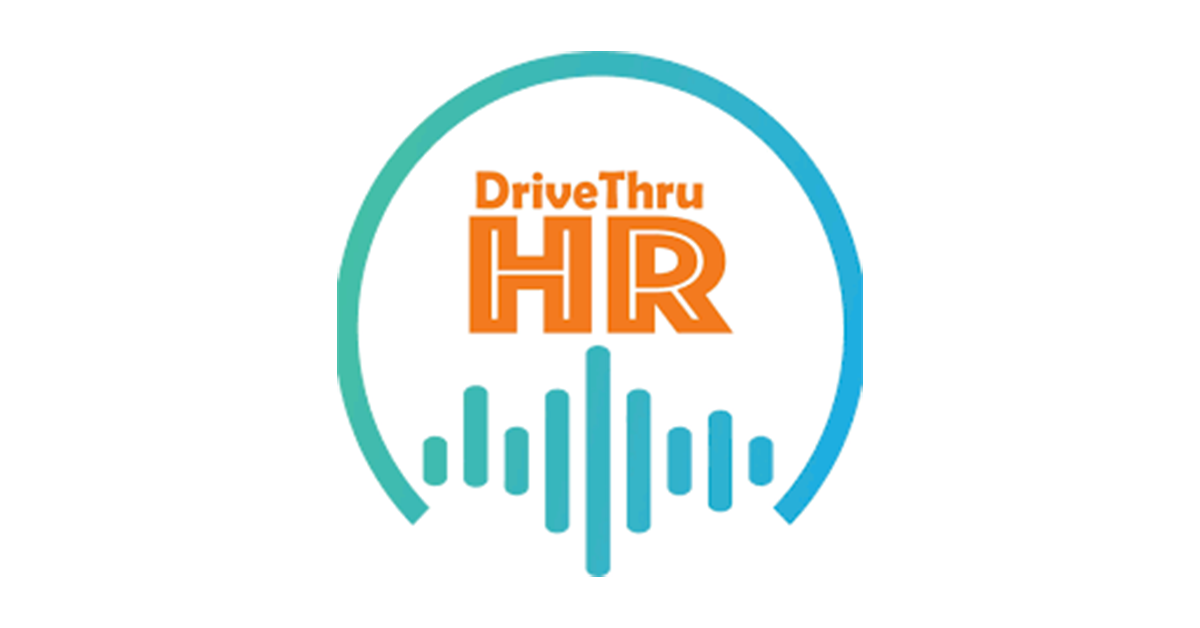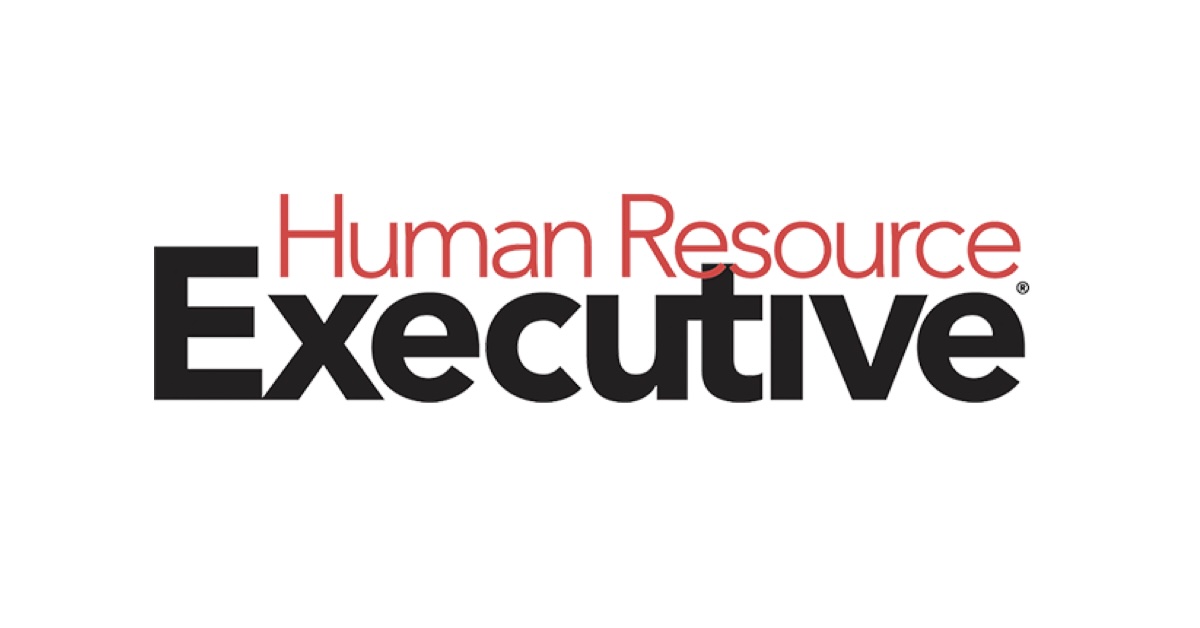What is a Whistleblower Policy?
A whistleblower policy is a crucial tool for any organization committed to maintaining a transparent and accountable workplace. It encourages employees to report unethical, illegal or unsafe behavior without fear of retaliation. This policy outlines clear procedures for confidentially disclosing concerns to management or designated authorities, ensuring that issues are addressed promptly and appropriately. The primary goal is to foster a culture where misconduct is identified early, allowing organizations to uphold ethical standards, mitigate risks and protect the well-being of employees and stakeholders alike.
Are Whistleblower Policies Required?
Whistleblower policies aren’t universally mandated, but they are legally required for specific industries and entities. Publicly traded companies and government contractors, for instance, must adhere to regulations like the Sarbanes-Oxley Act and the Dodd-Frank Act. These laws are crafted to ensure transparency and protect individuals who come forward to report misconduct.
Benefits of Implementing a Whistleblower Policy
Implementing a whistleblower policy can enhance the overall integrity and functionality of an organization. It sets clear standards and expectations, giving employees a reliable framework for raising concerns. This fosters a culture of transparency and accountability, reassuring employees that their voices will be heard and taken seriously.
Whistleblower policies serve as a valuable resource for employees, offering guidance and answers to questions about reporting misconduct. With a structured process in place, companies can address issues internally, preventing them from escalating. Effective whistleblower programs help companies uncover issues before they hit the public eye, allowing for timely and appropriate intervention. By embracing and supporting complaints through a formal whistleblower policy, organizations can maintain a positive and ethical workplace environment.
What to Include in a Whistleblower Policy
At a high level, a whistleblower policy should clearly communicate its purpose, outline the types of concerns that can be reported and detail the protections available to whistleblowers. It should also provide clear reporting options and describe the investigation procedures to be followed.
An effective whistleblower policy needs to be dynamic and highly visible within the organization. It’s not enough to simply have a policy in place; organizations must actively promote and educate employees about it. Employees must know it exists, understand how to use it and trust that their concerns will be taken seriously and handled confidentially.
Regular training sessions, clear and accessible documentation and consistent communication about the policy’s importance and updates are vital. Organizations should also share the outcomes of investigations where appropriate, without compromising confidentiality, to demonstrate the policy’s effectiveness and the organization’s commitment to addressing misconduct. This ongoing engagement ensures that the whistleblower policy is not just a document but a living, integral part of an organization’s culture.
Leadership’s Commitment
At the very top of the policy, include a message from the CEO or other senior leadership expressing a genuine commitment to ethical practices and encouraging employees to report any wrongdoing. This message should convey that the organization values transparency and integrity and that it genuinely wants to know if there are any issues that need to be addressed. It sets the tone for the policy and reassures employees that their concerns will be taken seriously.
Defining a Whistleblower
Provide a clear definition of what a “whistleblower” is within the context of your organization. This should explain that a whistleblower is an employee or stakeholder who reports unethical behavior, violations of company policy, or illegal activities. Defining this term helps ensure everyone understands who can be a whistleblower and what their role entails.
Identifying Valid Concerns
Outline what constitutes valid whistleblowing concerns. This may include but is not limited to, fraud, corruption, workplace safety violations, discrimination and harassment. Clearly defining these concerns helps employees understand what issues should be reported and reinforces the policy’s relevance.
Reporting Mechanisms
Detail the various reporting options available to employees. This could include anonymous reporting methods, an internal hotline, email, online portal or direct reporting to a designated person or department. Providing multiple reporting avenues ensures that employees feel comfortable and can choose the method that best suits their situation.
Ensuring Whistleblower Protections
Explain the protections offered to whistleblowers, such as anonymity and protection from retaliation. It’s important to emphasize that employees can report concerns anonymously if they choose and that the organization is committed to protecting them from any form of retaliation. Additionally, clarify the limits to these protections, acknowledging that in some cases, the investigation may require revealing the whistleblower’s identity, but this will be handled with utmost care.
Investigation Process
Describe the procedures that will be followed once a whistleblower report is received. This should include steps such as initial assessment, formal investigation and resolution. Clearly outlining the investigation process helps build trust in the system and ensures that employees know what to expect.
Legal Considerations
Include information on the legal considerations related to whistleblowing. This could cover relevant laws and regulations that protect whistleblowers, such as the Sarbanes-Oxley Act or the Dodd-Frank Act. Providing this information helps employees understand their rights and the legal framework supporting the whistleblower policy.
By incorporating these elements, organizations can create a robust whistleblower policy that not only meets legal requirements but also effectively communicates and enforces ethical standards.
Enhance Your Whistleblower Policy with Anonymous Reporting from HR Acuity
Companies have to be careful not to penalize whistleblowers for making good faith claims. At the end of the day, success is about reinforcing a culture of openness and transparency. When employees feel like their voice counts and there are no punitive measures behind raising an issue, the workforce will collectively seek out opportunities to ensure fairness and honesty. Instead of looking for a way to limit these claims, companies should accept them and address them head on, resolving the issue to the extent possible while it remains in their control.




